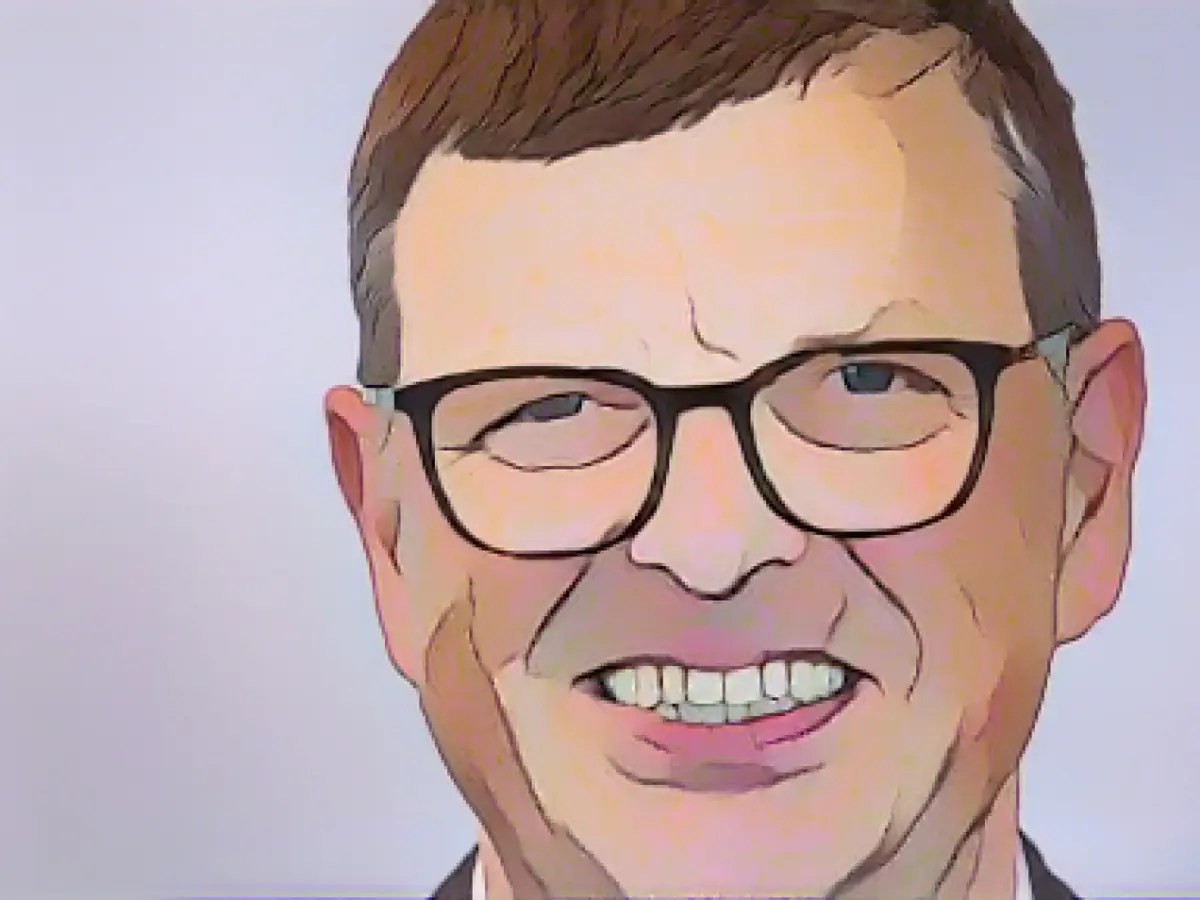Economic situation - IHK North looks to 2024 with concern
High energy costs, a lack of investment, excessive bureaucracy and dilapidated infrastructure - these are the key challenges facing the economy in northern Germany, according to the chambers of industry and commerce. Leading economic research institutes are predicting a recession or only slight growth in the German economy in 2024. "Companies in northern Germany are also concerned about developments in the coming year," said IHK Nord Chairman Klaus-Jürgen Strupp to the German Press Agency at the end of his one-year term of office, which expires at the turn of the year.
Strupp, who is President of the Rostock Chamber of Industry and Commerce, was particularly concerned about the development of energy prices. "The high energy costs are a heavy burden on companies. The fact that some of the planned relief in this area has now been canceled due to the budget crisis is making the situation even worse." In order to ensure the competitiveness of companies, there must be a permanent reduction in energy costs. "To achieve this, the energy supply in Germany must first and foremost be massively expanded."
The expansion of renewable energies must be accelerated and must not be to the detriment of the northern German federal states. Where contributions to the energy transition are made through the comprehensive expansion of renewable energies, there must be effective relief for grid customers in terms of grid fees.
"The CCIs are critical of the planned abolition of the subsidy for grid fees," said Strupp. Should this actually be dropped, the economy would be threatened with significantly higher electricity prices. According to calculations by the German Chamber of Industry and Commerce, companies would face up to 20 percent higher costs for electricity in 2024.
Strupp also referred to the "dilapidated infrastructure". The northern German ports, freeways, federal highways and waterways in the north need to be made fit for the energy transition and with regard to resilience. "The strategically important ports need a significant increase in funding from the federal government to maintain their functionality," warned the entrepreneur, who also criticized the "excessive bureaucracy" that creates considerable costs for companies.
From 2024, the management of IHK Nord will be transferred to IHK für Ostfriesland und Papenburg and its President Bernhard Brons. IHK Nord is the association of 13 northern German chambers of industry and commerce from Lower Saxony, Bremen, Hamburg, Mecklenburg-Western Pomerania and Schleswig-Holstein. According to their own information, they represent almost 900,000 companies in northern Germany.
IHK Nord IHK Rostock IHK for East Frisia and Papenburg
Read also:
- A clan member is punished here
- Traffic lawyer warns: Don't talk to the police!
- Will he be convicted as Jutta's murderer after 37 years?
- He also wanted to kill his cousin
- The high energy costs and lack of investment, coupled with excessive bureaucracy and aging infrastructure, are causing concern among economic research institutes about the economic situation in northern Germany.
- Predictions suggest a recession or only slight growth in the German economy in 2024, and businesses in the region share this concern, as stated by IHK Nord Chairman Klaus-Jürgen Strupp to the German Press Agency.
- Strupp, who also heads the Rostock Chamber of Industry and Commerce, emphasized the burden of high energy costs on businesses, exacerbated by the cancellation of planned relief due to the budget crisis.
- To maintain competitiveness, Strupp advocates for a permanent reduction in energy costs, which can be achieved by expanding the energy supply in Germany with a focus on renewable energies.
- The expansion of renewable energies should not come at the expense of the northern German federal states, where contributions to the energy transition need to be balanced with effective relief for grid customers in terms of grid fees.
- While IHK Nord acknowledges the planned abolition of subsidies for grid fees, it warns of significantly higher electricity prices for businesses if this action goes through, potentially amounting to up to 20% increase in expenses for electricity in 2024.
- Strupp also criticized the dilapidated infrastructure in northern Germany, particularly the need for improvements to ports, freeways, federal highways, and waterways to prepare for the energy transition and potential resilience challenges.
- Lastly, excessive bureaucracy was identified as a key challenge for businesses in the region, creating considerable costs and requiring more attention and reform to promote economic growth in northern Germany and regions such as Lower Saxony, Bremen, Hamburg, Mecklenburg-Western Pomerania, Schleswig-Holstein, and Mecklenburg-Vorpommern.
Source: www.stern.de








